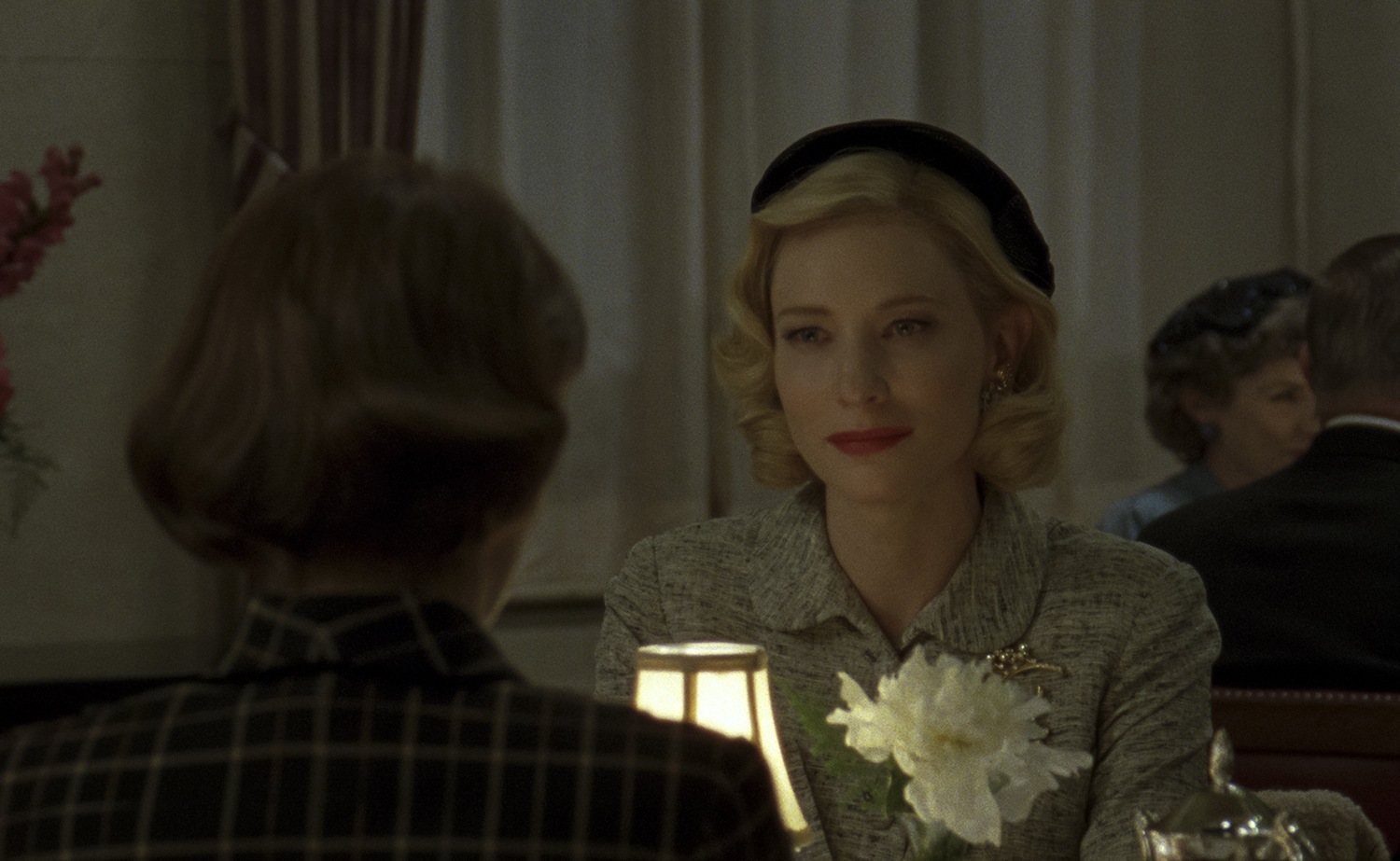Back in 2012, Fox News spoke to author Bob DeMoss, who was “shocked when bare breasts and a sex scene confronted him on a recent Delta flight.” DeMoss recounted with hilarious horror how he reached for a vomit bag to cover the screen when one of the characters of political drama Boss “[bore] her breasts six inches from my face…tore her top off and reached for her partner’s zipper.”
Delta passengers tuning into Carol, Todd Haynes’ exquisite period romance released last year, won’t need to do the same. The airline is presently showing a version of the film in which acts of intimacy between the two main characters have been edited out. This includes every scene in which Cate Blanchett and Rooney Mara’s characters simply kiss. Which, uh, is sort of the point of the film?
Yesterday afternoon, comedian Cameron Esposito expressed her frustration about the heavily edited film on Twitter. Other queer women who had seen the film for the first time aboard flights responded saying that they thought this complete absence of intimacy was Haynes’ original directorial choice. “BTW my seatmate totally watching something where Paul Giamatti was participating in BDSM w/ a lady but Carol had no kissing!? VERY MAD,” Esposito tweeted. And she’s definitely not alone.
@cameronesposito @Delta wait WHAT!? I saw it on a Delta flight and thought that the director/producer chose that creatively.
— Mary Lambert (@marylambertsing) August 3, 2016
Lesbian-focused pop culture site AfterEllen reached out to Delta’s Corporate Communications team, who explained that: “there were two versions of this film that the studio makes available – one that is edited and one that is not edited. The edited version removes two explicit scenes that do not meet our guidelines. The edited version also removes all kissing. The other version is fully non-edited and includes the kissing, but it also includes the explicit scenes. Unfortunately, Delta doesn’t have the rights to edit the movie, or to make the decision to keep some of that content (e.g. kissing).” Because of the explicit scenes included in this non-edited version, Delta chose the edited one. “This is consistent with what is available to all airlines,” its statement concluded.
Related: Oscars, where are all the queer films?
Phyllis Nagy — the film’s screenwriter who adapted the story from Patricia Highsmith’s 1952 novel The Price of Salt — later revealed on Twitter that there are two domestic airlines that have chosen to play the unedited theatrical version: American and United. “Makes zero sense without the intimacy,” she added. To say the least.
As this news has spread, other Twitter users have responded with the #freecarol hashtag, expressing their frustration with the heavily edited version. Much of the criticism has been directed at Delta, but based on the airline’s statement, perhaps Twitter users should be asking the Weinstein Company why its edited option is diametrically opposed to its film’s reason for being. AfterEllen reached out to the studio for comment, which it has yet to make.
There’s a pretty long and depressing history of how homosexuality in film has been reduced to subtle, coded behaviors (watch The Celluloid Closet documentary or just Steven Spielberg’s version of The Color Purple, for which he quashed the book’s central lesbian romance to get a PG-13 rating). At the time Highsmith published The Price of Salt, it was unheard of for lesbian characters to be alive by their story’s end, let alone with dignity. And despite the fact that the film was released over 60 years later, the film’s relatively happy ending for lesbians is still exceptional. So for Carol to be censored to nothing but furtive glances is regressive and, much like the film industry itself, pretty homophobic.
Related: LGBT diversity in film is actually getting worse, says study
Credits
Text Emily Manning
Image © 2015 The Weinstein Company. All rights reserved.
